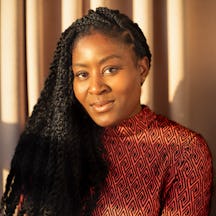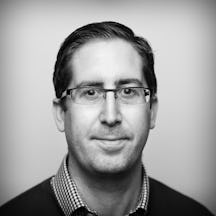Doctor and activist Annabel Sowemimo was deep into the research for her first book, an exploration of race and health, when her beloved nana had a stroke. Caring for her nana alongside the rest of her family, she began to truly understand how important it is to have someone to advocate for you when you are ill – and the consequences when you don’t. In this abridged extract from ‘Divided’, Annabel argues why we need to urgently and radically reimagine both healthcare and society.
Why we need to decolonise healthcare
Words by Annabel Sowemimophotography by Steven Pocockaverage reading time 8 minutes
- Book extract
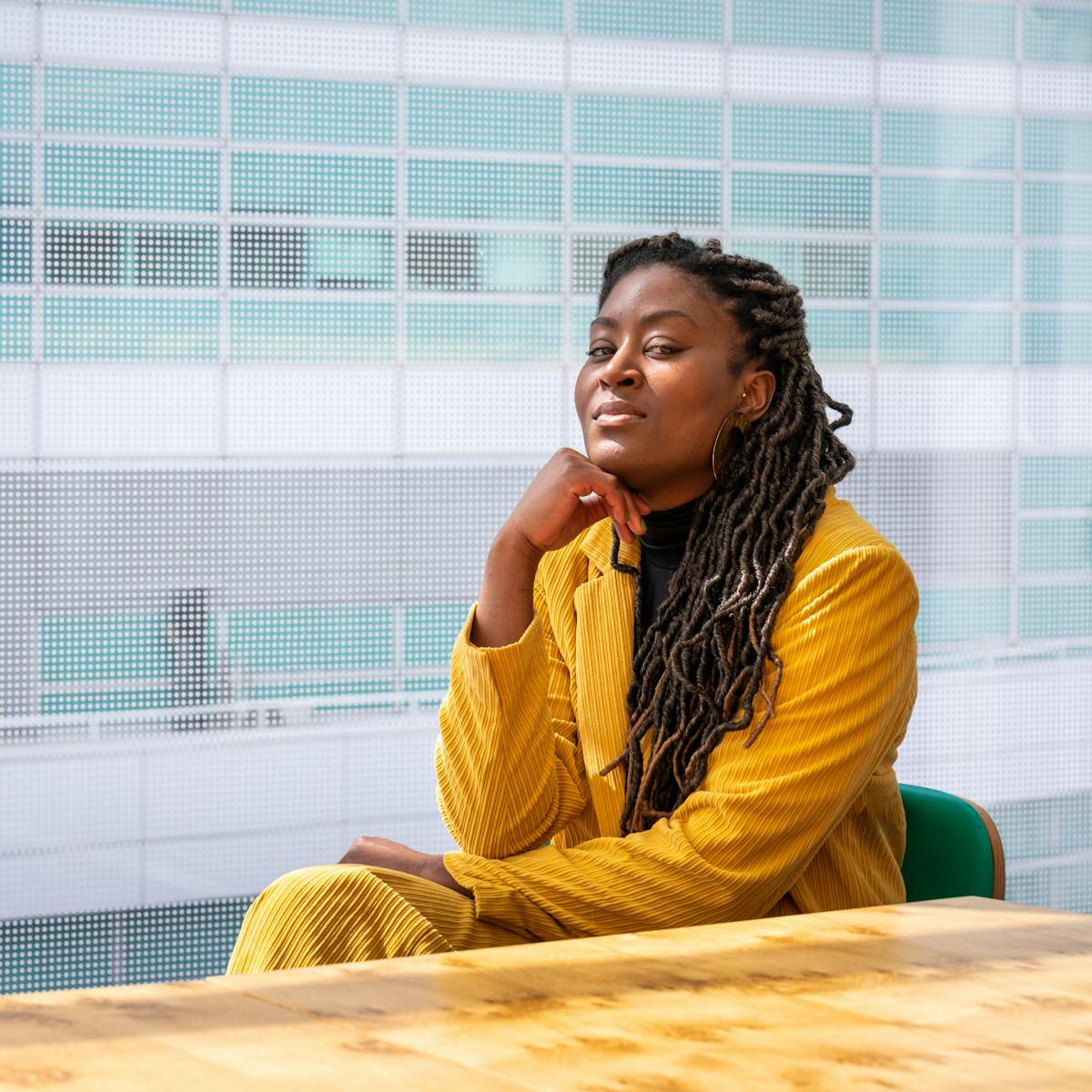
After many months pondering how we must start to reimagine healthcare for everyone, I find my own perspectives again uniquely shifted. My 89-year-old nana has a stroke and I think she is going to die.
My nana, whose house I spent my childhood playing at, her home the centre point for my family’s social occasions. My nana, who relocated across continents in hopes of better life; she managed to find that, and has always told me that “all things are possible”.
On Mother’s Day, she was found in her large, much-loved recliner chair, unable to move or speak. My uncle, one of my mum’s older brothers, phoned my mum; she was already on her way to visit her for Mother’s Day. I had left my mum at the Tube station just a few minutes before, and I was going to join them both that evening.
I had tried to call my nana that morning; she had not picked up but, as you do, I had believed I would see her soon, with her fiery sense of humour, in a few hours. But I don’t get the opportunity. The next time I see her, she is lying on a hospital trolley being wheeled to have a CT scan of her head.
The nurse wheeling her from the A&E resuscitation bay, slightly irritated by my constant sobbing, tells me that “I only have a few minutes because of Covid-19”. I am distraught, all reason evaporates, and I am of little help to my family for several days.
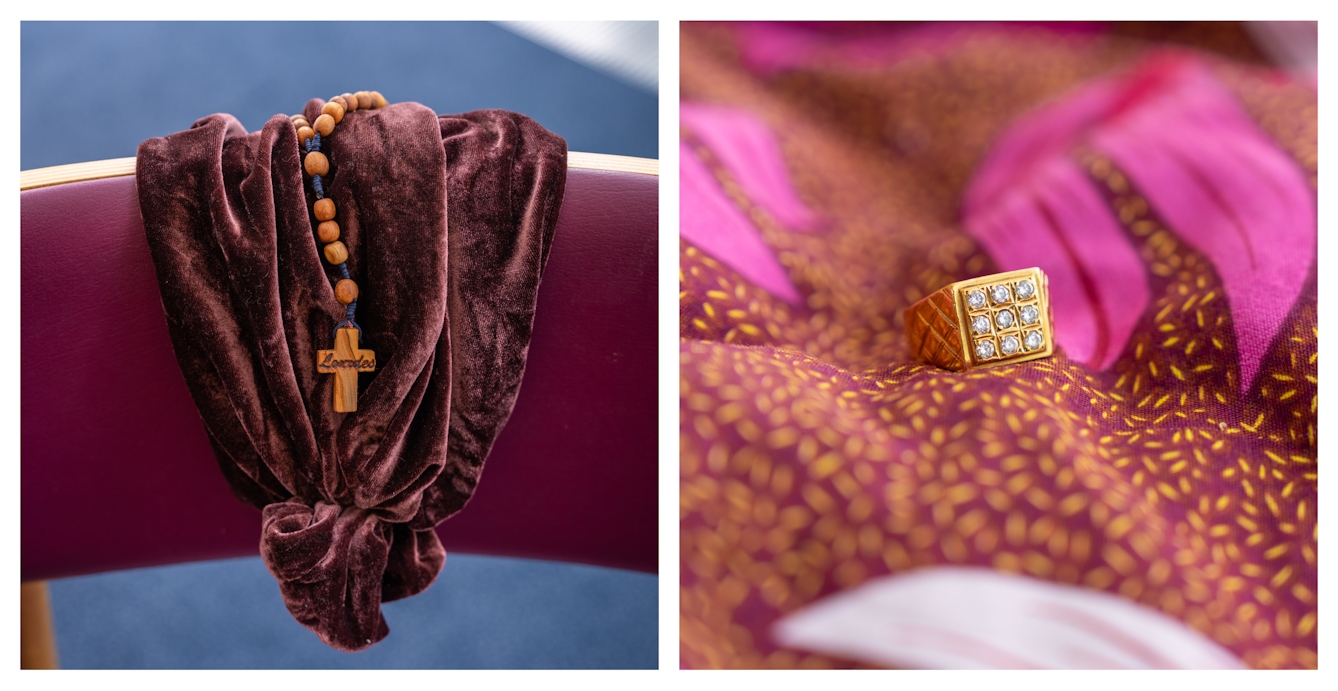
“My nana, who relocated across continents in hopes of better life; she managed to find that, and has always told me that ‘all things are possible’.”
Yet she pulls through the next few days, despite the odds stacked against her. I feel selfish, given her age and all the lives lost due to Covid (thought to be just over six million at the time of writing), for asking for her to be spared.
She has always been a fighter, always been greedy for life, keen to relish every moment; she knows the bus routes all over London by heart, visits various friends all over the city – some of them only known to me by their location, such as ‘Mama Holloway’, who lives on the Holloway Road. For now, she is no longer full of life, she tuts sometimes, and I think she knows it’s me, but I can’t be certain.
Why hospital patients need advocates
Ageing and death is something we all experience. But as my nana lay in her hospital bed, I was reminded of why I wanted to write ‘Divided’ – to reduce unnecessary suffering. My nana had a profound dislike of hospitals, on several occasions espousing that it was simply “where people of her age went to die”; she felt that health professionals write off people of her age, and she didn’t want this for herself.
Over several weeks, my family and I began advocating for her, liaising with the physiotherapist, discussing with the speech and language team, and bringing in some of her favourite objects to stimulate her mind. We created a WhatsApp group, sharing information and lifting each other’s spirits about her daily triumphs. It seemed that being surrounded by love and the collective action of my family encouraged her to fight, and every day she continued to make progress.
Yet as I looked around the ward at the other patients, it became glaringly obvious that not everyone had someone to support them. Some had family living abroad or were the last remaining relative alive. Some people are truly on their own and do not have the strength to advocate for themselves.
I began assisting patients in my nana’s hospital bay – helping to hold their cup as they drank, giving them a tissue as they cried, or calling a relative on the phone. I did as I hoped others would be doing for my nana when none of my family or I were there. In doing so, I realised that this is what I hoped others will take away from my book; that we all should advocate for the health of others, as we would wish our own health to be advocated for.
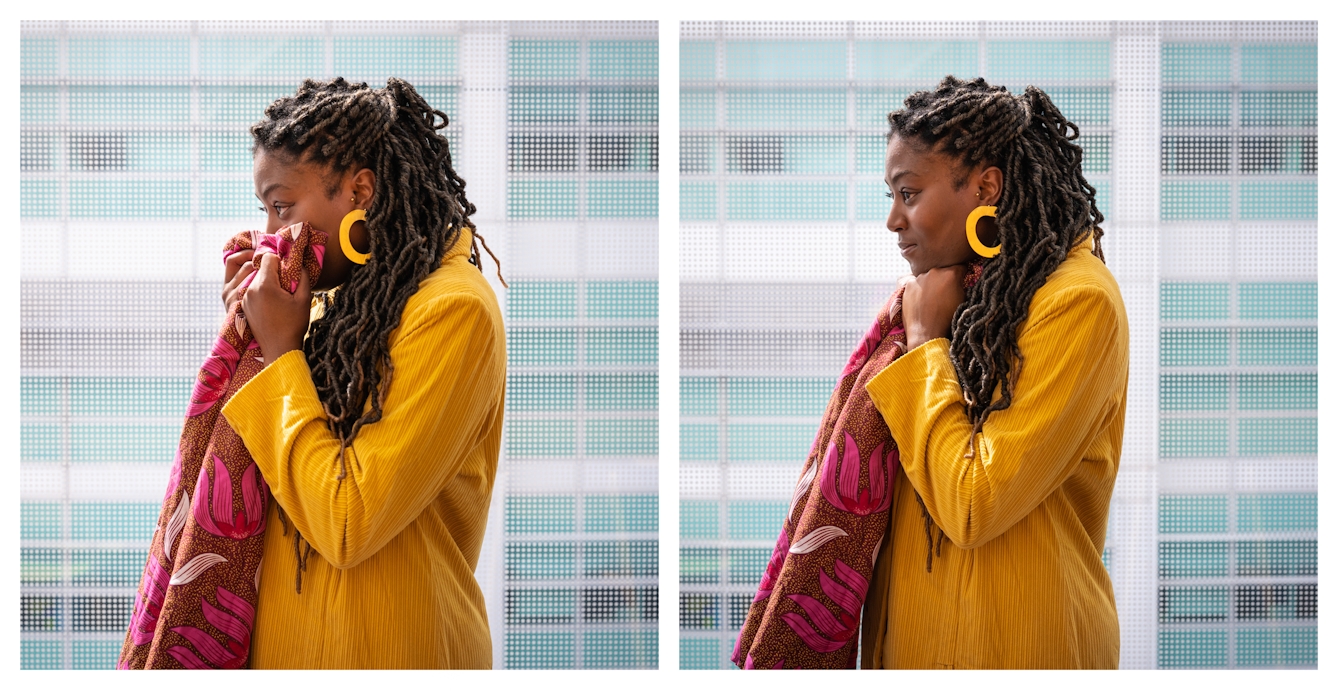
“It seemed that being surrounded by love and the collective action of my family encouraged her to fight, and every day she continued to make progress.”
We cannot acquire or maintain good health by focusing solely on the needs of a few; we must pay attention to the needs of the least fortunate if we are going to establish a system that works for us all. You can never know what illness will befall you or when you too will need others to lend their voice to your cause.
Capitalism and health inequality
Decolonising healthcare means radically reimagining the structure of our society. The dominant system of healthcare globally is inherently neocolonial; our understanding of health has been built on the premise that the health of some groups matters more than others, and race science was established to justify the subjugation of millions of people sprawled across the European colonies.
Today the legacy of colonial race science is obvious in the way our healthcare systems continue to operate; the health of those in the Global North relying on labour from the Global South, the necessity of utilising poor countries as testing grounds for our medication, while at the same time not creating pathways for equal access to new medical treatments and devices.
Health disparities, which have long persisted, reflect the social divisions, which seem set to worsen over the next few years. Increasingly, both here in the UK and globally, healthcare is becoming a bigger business.
Continued privatisation of the NHS and a growing number of companies seeking to profit from our health has the potential to set back health inequalities several decades. Of course, health equality is not possible under capitalism; it is the very antithesis of good, equal health.
If someone is profiteering from healthcare, then invariably someone else will be suffering.
Capitalism means that the health of many must suffer to sustain the health and livelihoods of a few; this continues to be the health of racially minoritised people, often travelling from the Global South to sustain the health systems of wealthier, whiter countries. These same workers often fail to receive good-quality healthcare in the countries they have travelled to; statistics reveal the health of many economic migrants, and migrants generally, is appalling.
Good health and healthy profit are an oxymoron; if someone is profiteering from healthcare, then invariably someone else will be suffering. This need not be the case when it comes to our health; we must resist those that state that communities with the poorest health bring it on themselves.
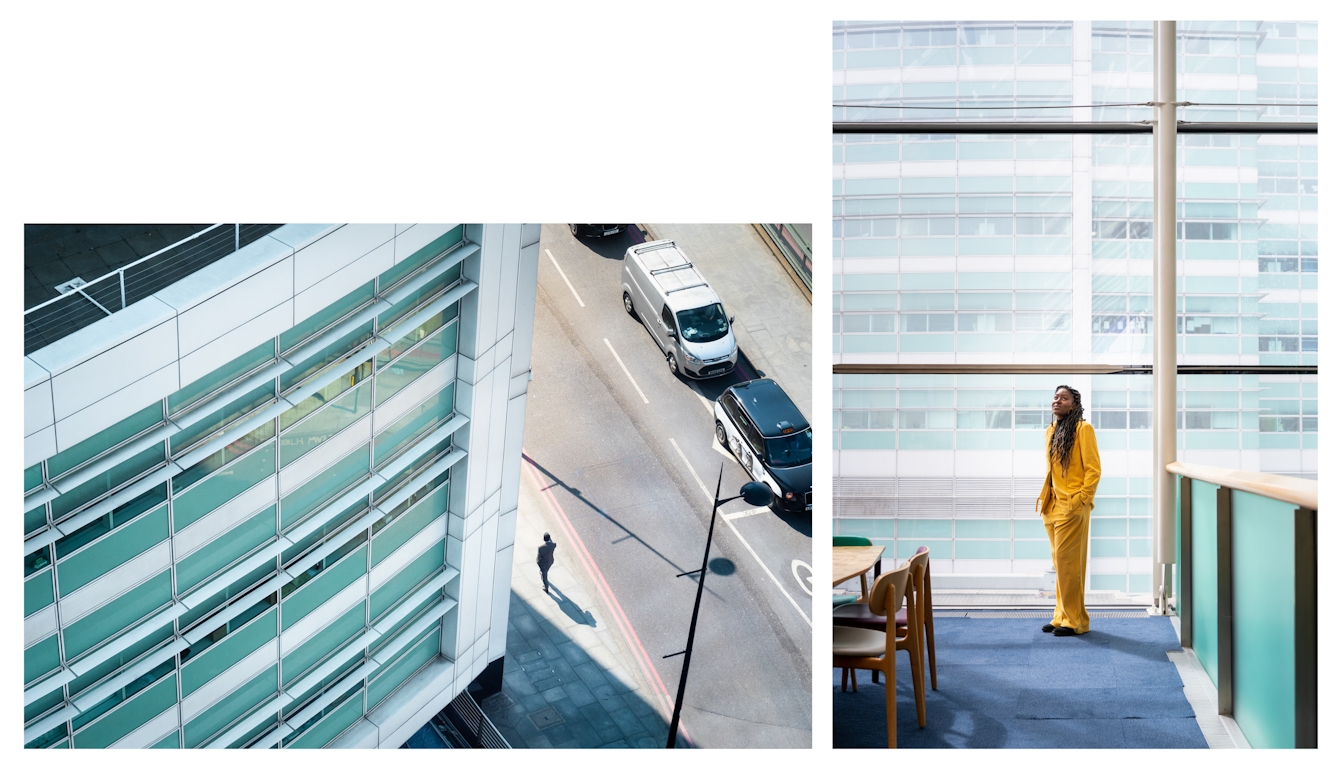
“Capitalism means that the health of many must suffer to sustain the health and livelihoods of a few.”
The health system we have today sets some groups up to have poor health from the start; the system in place means that it is more difficult for them to access treatment, and when they do, they are less likely to have their health complaints, like pain, taken seriously. The diagnoses we give are built on research that rarely takes their needs into consideration, and therefore the treatments devised are often flawed too. It is a cycle of horrors that we must work diligently to free ourselves and others from.
Systems built on bias
In 2020, Ella Kissi-Debrah, who died in 2013 at the age of nine, became the first person in the UK to have air pollution listed as a cause of death. This was finally recognised after years of dedicated campaigning by her mother, who told the inquest that Ella had attended hospital a total of 27 times over three years prior to her death.
The coroner concluded that excessive levels of pollution from a busy main road, the South Circular in Lewisham (an area of London with one of the highest Black populations), exacerbated her asthma and led to her death. In addition, the coroner highlighted that there was a lack of information given to Ella’s mother regarding her condition. The damning verdict highlights how race, poverty and poor health continue to intersect, wreaking havoc, from the earliest age.
We have been lulled into the false belief that by simply improving diversity among healthcare professionals and researchers in the Global North or in senior health-leadership positions, we will transform the landscape of healthcare and magically improve racial inequalities. Improving diversity undoubtedly helps in bringing new perspectives and fresh lived experience. But we need to do more.
If we truly wish to create more equitable tools to manage our health, then we must go beyond the solution of putting more racially minoritised groups in a room. Instead, we must interrogate the very foundations on which our understanding of the body and our own health has been built, pushing discussions on health inequalities much further.
We cannot ignore the fact that science and healthcare are not the unbiased systems we have been told they are. Our health systems are working as they were intended to – built by and still serving the needs of white, wealthier individuals and leaving others behind. We must dismantle these systems and build new ones. Every small step towards positive change can save lives.
‘Divided’ is out now.
About the contributors
Annabel Sowemimo
Dr Annabel Sowemimo is a doctor, activist and writer. As well as being a sexual and reproductive health consultant in the NHS, she is also the founder of community-based organisation Reproductive Justice Initiative, formed to address the colonial history of sexual and reproductive health. Annabel is a PhD candidate and Harold Moody Scholar at King’s College London. Her first book, ‘Divided’ (Wellcome Collection/Profile Books) is an exploration of race and health.
Steven Pocock
Steven is a photographer at Wellcome. His photography takes inspiration from the museum’s rich and varied collections. He enjoys collaborating on creative projects and taking them to imaginative places.
